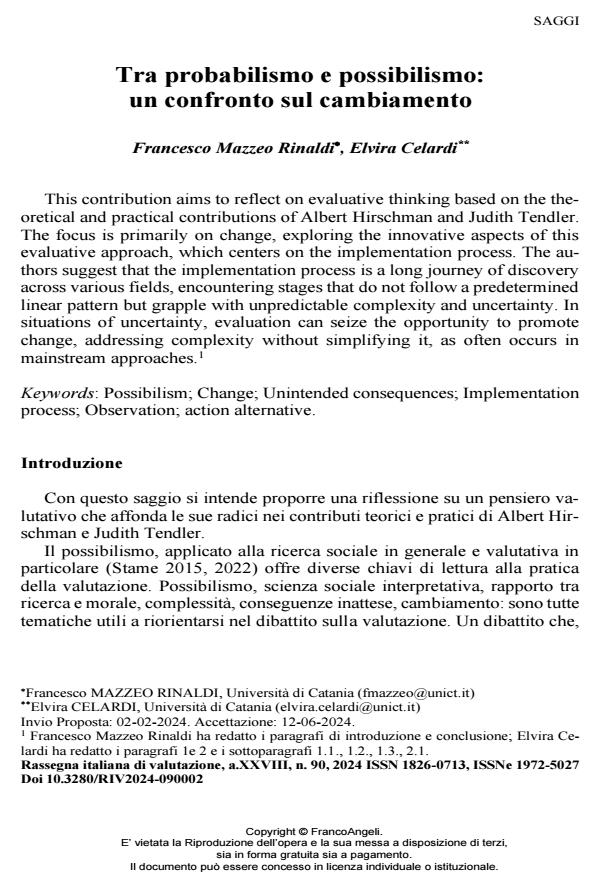Tra probabilismo e possibilismo: un confronto sul cambiamento
Journal title RIV Rassegna Italiana di Valutazione
Author/s Francesco Mazzeo Rinaldi, Elvira Celardi
Publishing Year 2024 Issue 2024/90
Language Italian Pages 16 P. 11-26 File size 436 KB
DOI 10.3280/RIV2024-090002
DOI is like a bar code for intellectual property: to have more infomation
click here
Below, you can see the article first page
If you want to buy this article in PDF format, you can do it, following the instructions to buy download credits

FrancoAngeli is member of Publishers International Linking Association, Inc (PILA), a not-for-profit association which run the CrossRef service enabling links to and from online scholarly content.
This contribution aims to reflect on evaluative thinking based on the theoretical and practical contributions of Albert Hirschman and Judith Tendler. The focus is primarily on change, exploring the innovative aspects of this evaluative approach, which centers on the implementation process. The authors suggest that the implementation process is a long journey of discovery across various fields, encountering stages that do not follow a predetermined linear pattern but grapple with unpredictable complexity and uncertainty. In situations of uncertainty, evaluation can seize the opportunity to promote change, addressing complexity without simplifying it, as often occurs in mainstream approaches.1
Keywords: Possibilism; Change; Unintended consequences; Implementation process; Observation; action alternative.
Francesco Mazzeo Rinaldi, Elvira Celardi, Tra probabilismo e possibilismo: un confronto sul cambiamento in "RIV Rassegna Italiana di Valutazione" 90/2024, pp 11-26, DOI: 10.3280/RIV2024-090002